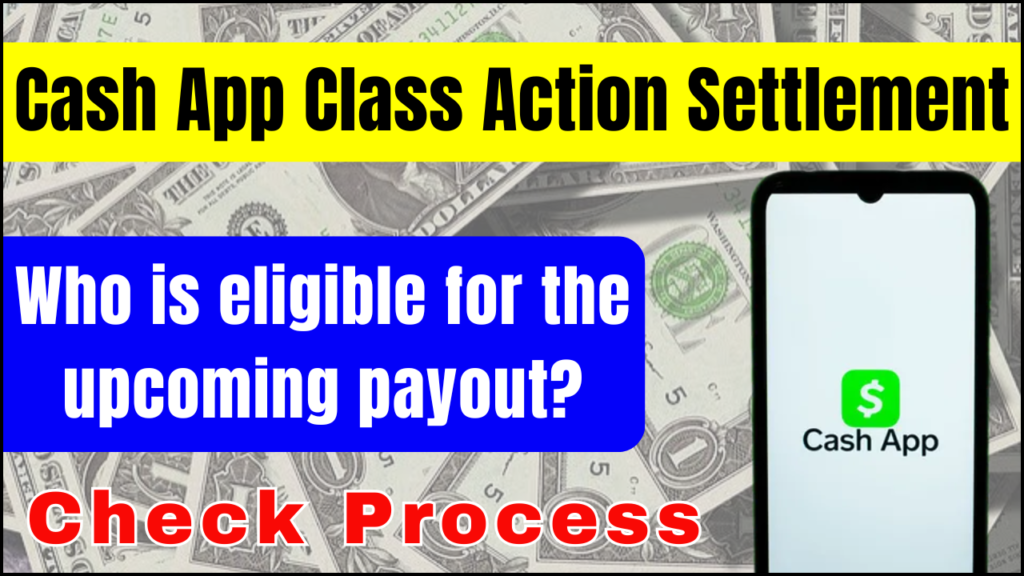
In a major development affecting millions of Americans who use digital payment services, Cash App has been ordered to pay $175 million in penalties and refunds following an investigation by the Consumer Financial Protection Bureau (CFPB). This settlement addresses serious security failures that left users vulnerable to fraud and highlights important consumer rights many people didn’t know they had.
The Settlement at a Glance
Cash App’s parent company, Block, Inc., must now pay:
- Up to $120 million in refunds directly to affected users
- A $55 million penalty to the CFPB’s victims relief fund
This action comes after investigators found that Cash App failed to protect its 56 million users from fraud, improperly handled disputes, and left customers without adequate support when problems occurred.
What Went Wrong at Cash App?
The CFPB uncovered several serious problems with how Cash App operated:
Poor Security Measures
Cash App didn’t put proper security systems in place to protect users’ money. This made it easier for scammers to access accounts and steal funds through unauthorized transactions.
Capital One Settlement 2025, Eligibility Criteria, Payout Dates & Security Benefits
Misleading Customers About Their Rights
When users reported unauthorized transactions, Cash App often told them to contact their bank instead. This advice was not just unhelpful—it was actually against federal law. Under the Electronic Fund Transfer Act (EFTA), Cash App itself was responsible for investigating these problems.
Inadequate Customer Support
Many users who experienced fraud found it nearly impossible to get help. The phone number on Cash Cards led only to automated messages. With limited ways to reach actual human support, users were left frustrated and without assistance when they needed it most.
Incomplete Fraud Investigations
When users did manage to report unauthorized transactions, Cash App often closed their cases without proper investigation. Many legitimate claims were denied, leaving victims without their money.
Who Will Get Refunds from the Settlement?
According to the settlement terms, several groups of Cash App users should receive refunds:
- People whose unauthorized transactions weren’t properly investigated
- Users who reported fraud but didn’t receive entitled refunds
- Customers whose accounts were locked for long periods without provisional credits
The good news is that affected users won’t need to file claims themselves. Block is required to identify who was impacted and issue refunds directly. The CFPB will oversee this process to ensure it’s done correctly.
How This Settlement Helps All Cash App Users
Beyond the financial penalties, the settlement forces Cash App to make important changes that benefit everyone using the platform:
Better Customer Support
Cash App must now provide 24/7 live customer support. This means users will finally have access to real people who can help with account problems and fraud concerns at any time.
Stronger Security
The company must improve its security systems to better detect and prevent unauthorized transactions. This includes better monitoring for suspicious activities and faster responses when potential fraud is detected.
Clearer Dispute Process
Cash App has to clearly explain users’ rights and make it easier to report problems. The confusing and misleading information that previously frustrated customers must be replaced with straightforward guidance.
Regular Oversight
The CFPB will conduct regular audits to make sure Cash App continues to follow these new rules and properly protects its users.
Understanding Your Rights with Digital Payments
Many people don’t realize they have important legal protections when using payment apps like Cash App. The Electronic Fund Transfer Act gives you specific rights:
- You have 60 days from your bank statement date to report unauthorized transactions
- Companies must investigate these reports within 10 business days
- If they need more time to investigate, they must give you a temporary credit while they complete their review
These rights apply whether you’re using traditional banks or newer digital payment services. The Cash App settlement shows that even popular tech companies must follow these consumer protection laws.
What This Means for the Future of Digital Payments
This settlement sends a clear message to all financial technology companies: following consumer protection laws isn’t optional.
As more people use digital payment platforms instead of cash or traditional banking, proper security and customer support become even more important. The action against Cash App shows that regulators are paying attention to how these companies treat their users.
For consumers, the settlement highlights the importance of knowing your rights and holding service providers accountable. Even as payment methods evolve, your right to secure transactions and fair treatment remains.
What Cash App Users Should Do Now
If you use Cash App, here are some steps to protect yourself:
- Update your app to ensure you have the latest security features
- Enable all available security options such as PIN protection and two-factor authentication
- Monitor your transactions regularly to quickly spot any unauthorized activity
- Report problems immediately if you notice suspicious transactions
- Keep records of all your transactions and any communication with customer service
Remember that under the settlement terms, Cash App must now provide better support and clearer information about how to report and resolve problems.
Final Thoughts
The $175 million Cash App settlement represents one of the largest penalties ever imposed on a digital payment platform. It serves as an important reminder that even as financial services become more digital and convenient, consumer protection remains essential.
For the millions of Americans who rely on Cash App and similar services for everyday transactions, this settlement should lead to a safer, more responsive experience. The improved security measures and customer support requirements will benefit both current and future users.
As digital payments continue to grow in popularity, this case establishes an important precedent: technology companies that handle people’s money must meet the same standards for security and customer service that have long applied to traditional financial institutions.
With proper oversight and enforcement of consumer protection laws, digital payment platforms can fulfill their promise of making financial transactions more convenient without sacrificing security or accountability.